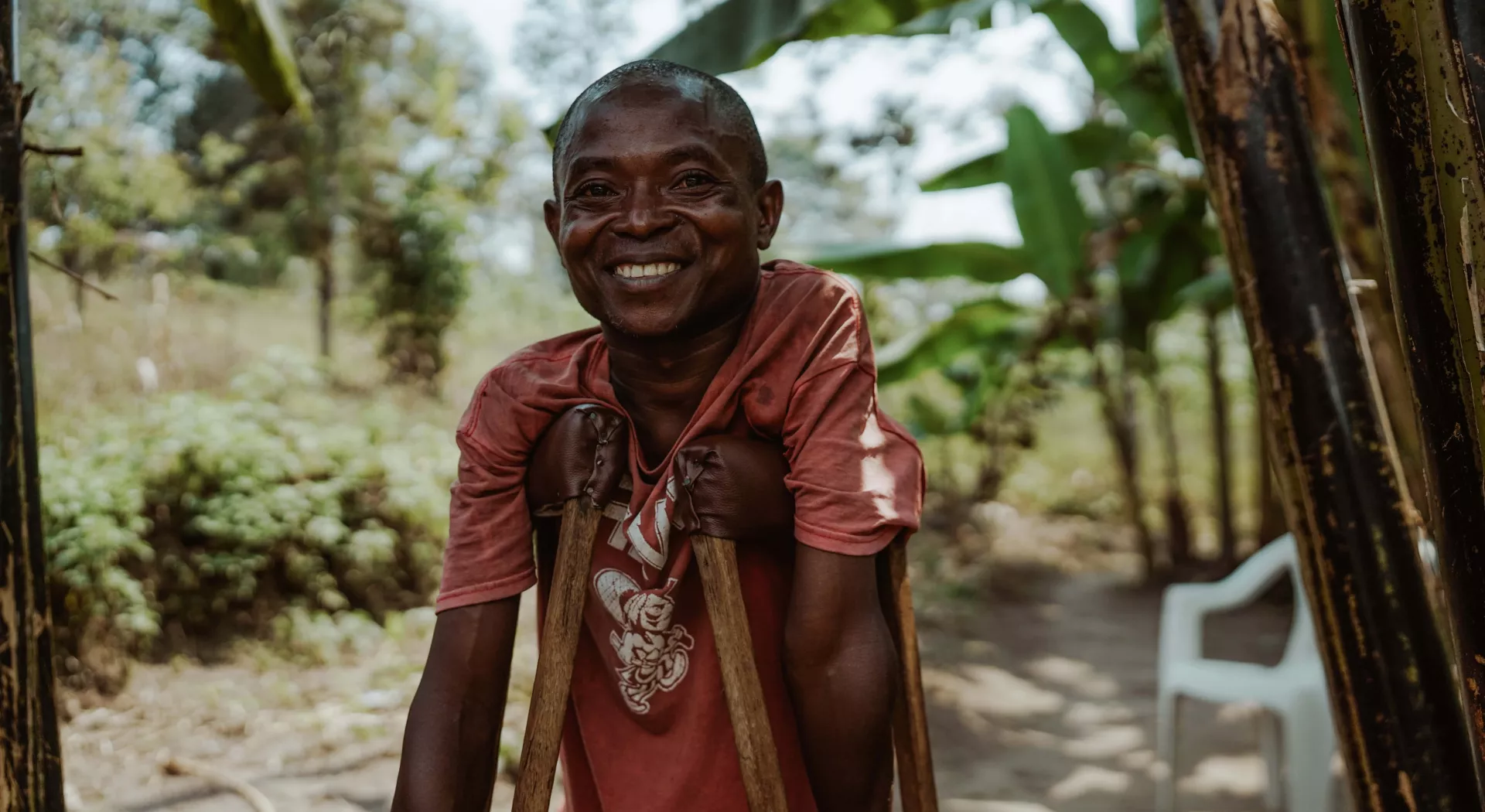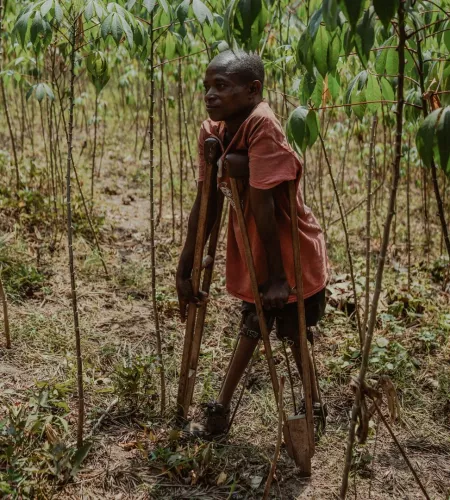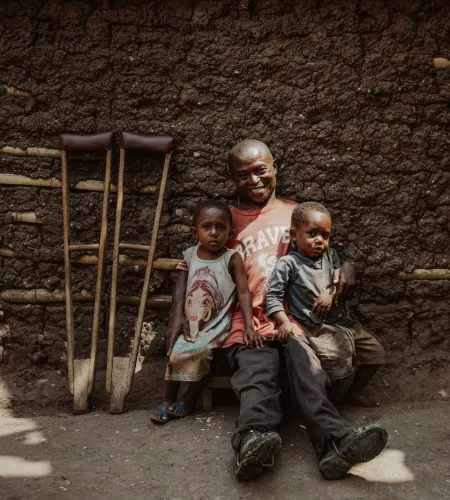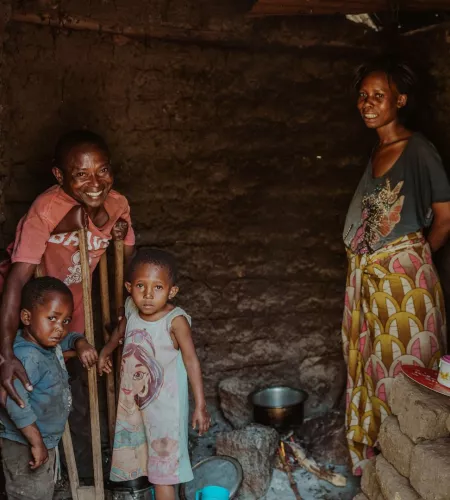Pascal contracted polio in the third grade of primary school. The disease affected one of his legs, and a few years later, his second leg was affected too. He shares: "Because of polio, I became paralyzed in both legs. I moved around on my hands and knees."
Abandoned
This situation was hard for Pascal's family to accept. "My family completely abandoned me. To them, I was worthless because I couldn't help them with anything. They saw me as a burden." At school, he was treated similarly. "No one wanted to sit next to me or touch me. They thought I would infect them."
The situation took a toll on Pascal's feeling of self worth. "I felt terrible and abandoned. I had lost my dignity."





